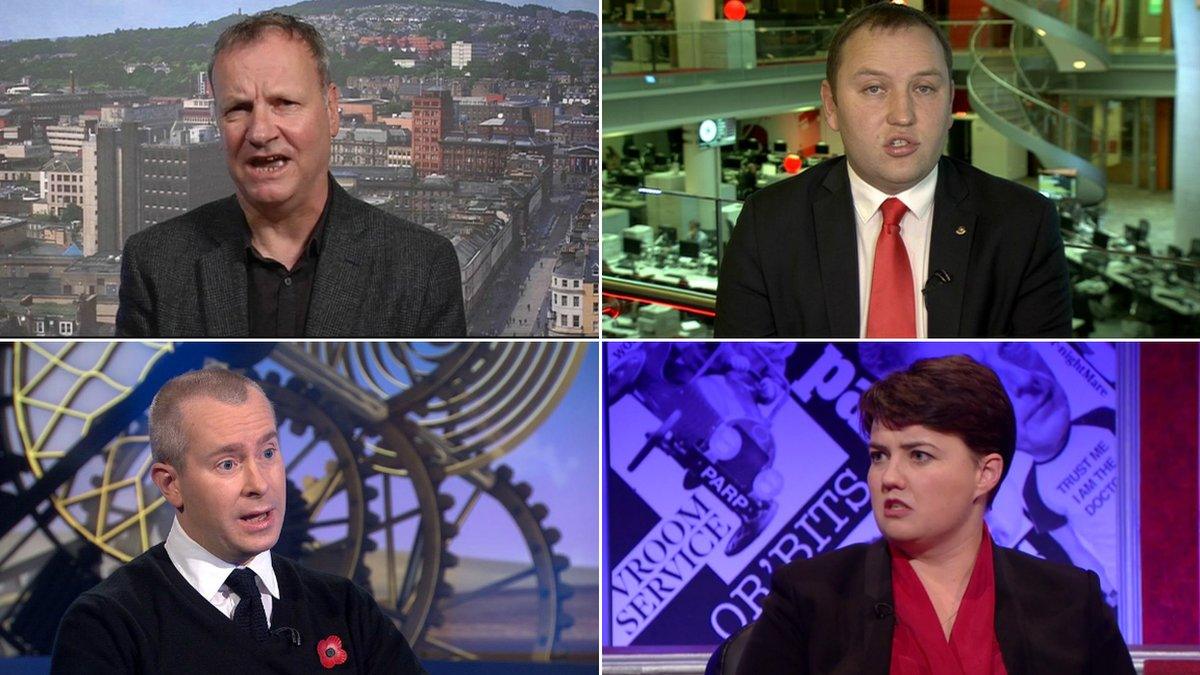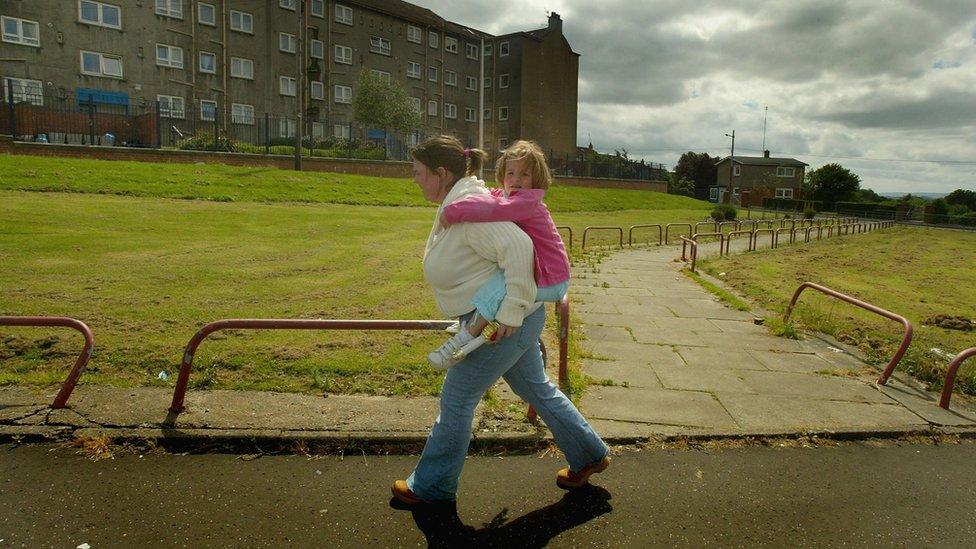Labour 'would support U-turn' over tax credits
- Published
John McDonnell: "We need a U-turn" on tax credits cuts
Labour has said it would support the government if it delayed plans to reduce tax credits, amid efforts to kill off the proposals entirely.
Shadow Chancellor John McDonnell said cuts should be put on hold to study the impact on those affected and at least three years of transitional help given.
Labour would "not make political capital" out of a full U-turn, he said.
Education Secretary Nicky Morgan said Labour had no "credible alternative" and the "policy wasn't changing".
She told the BBC's Andrew Marr show that Chancellor George Osborne was in "listening mode", ahead of a series of key votes on the issue in the House of Lords on Monday, where the government does not have a majority and faces possible defeat.
But she said she was not aware of any discussions about watering down the changes and it was important that the "overall package" offered by the government, including a new living wage, more free childcare and a higher personal income tax allowance, was taken into account.
'Above politics'
The government is coming under sustained pressure to rethink the plans, which opponents say could take more than £1,000 per year away from millions of low-income working families from April.
On Monday, peers will vote on a rarely-used "fatal motion" tabled by the Lib Dems which would scrap the proposed changes entirely.
Labour is backing a rival motion which calls for the changes to be delayed pending an independent analysis of their impact and until transitional assistance is put in place, while a third motion put forward by Church of England bishops expresses regret but would allow the changes to pass.
Mr McDonnell denied Labour's motion would effectively also kill off any changes to the £30bn tax credit bill.
Nicky Morgan emphasised the "broader package" of reforms the government was making would make "a positive difference"
"No, I think it is a real offer to George Osborne to see if we can make sure people are properly protected," he told Andrew Marr.
"This is becoming above politics. I know what a U-turn looks like and how it can do damage to you but we need a U-turn on this.
"These are people who go to work, look after their kids, do everything asked of them and they are going to lose on average £1,300 a year. 200,000 children could be forced into poverty as a result of this. Out there right across society, people are saying this is unacceptable."
'Unprecedented'
Mr McDonnell said he had written to Mr Osborne, external to make clear that if the government changed tack now, Labour would "co-operate" in future efforts to review the tax credit bill, as long as it was done "at the right time and in the right way".
He writes that Mr Osborne will have to do a full u-turn on this issue.
He wrote: "It can't be a fudge. Not some partial reversal that scores cheap headlines yet leaves people still worse off or lands another burden on middle and low earners or the poorest in our society. You need to drop this policy completely."
"If the Lords do throw this out tomorrow and put it back to the government, I've said to him 'If you change your mind, bring back a policy in which people are protected, not a political stunt but a real protection, we will not in any way attack you for that. In fact we'll support you'," he said.
But Ms Morgan said the Cabinet was "united" behind the reform of tax credits, saying they had been approved by MPs on three occasions.

What are tax credits and what are the changes?
Tax credits are a series of benefits introduced by the last Labour government to help low-paid families. There are two types: Working Tax Credit (WTC) for those in work, and Child Tax Credit (CTC) for those with children.
Under government proposals, the income threshold for Working Tax Credits - £6,420 - will be cut to £3,850 a year from April.
In other words, as soon as someone earns £3,850, they will see their payments reduced. The income threshold for those only claiming CTCs will be cut from £16,105 to £12,125.
The rate at which those payments are cut is also going to get faster. Currently, for every £1 claimants earn above the threshold, they lose 41p. This is known as the taper rate. But from April, the taper rate will accelerate to 48p.
There will be similar reductions for those who claim work allowances under the new Universal Credit.

It would, she said, be "constitutionally unprecedented" for the unelected House of Lords - whose function it is to revise government legislation but which cannot change Finance Bills - to block a budgetary measure enacted via secondary, delegated legislation.
"They should be very mindful about what they are doing," she said. "That is not what the Lords is about."
Defending the "broader package" of tax and welfare changes, she added: "The prime minister has made it clear the policy isn't changing. You have to accept that people keep more of the money they earn rather than being recycled through the system.
Lord Newby says cuts to tax credits would have a "terrible effect" on people with low incomes
"Labour wanted a mandatory living wage and that is coming in and the income tax threshold is rising too."
Lib Dem party leader Tim Farron said his peers were "well within their rights" to seek to block the changes, telling Sunday Politics that the Conservatives did not have a mandate for them as they were not included in their general election manifesto.
According to parliamentary records, external, peers have killed off secondary legislation supported by the Commons on only five occasions since 1945: in 1968, 2000 (twice), 2007 and 2012.
One constitutional expert, Peter Riddell from the Institute for Government, told Sky News that the government would "get its way" eventually but it might take some time and he expected there would be modifications to the tax credit changes to "soften the blow".
- Published25 October 2015

- Published23 October 2015

- Published24 November 2015

- Published21 October 2015